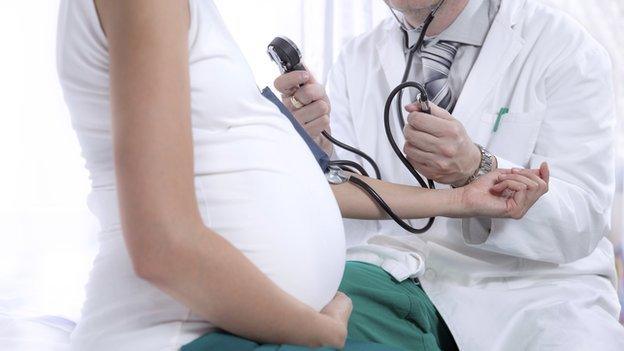Abortion: SDLP opposes changes to Northern Ireland law
- Published
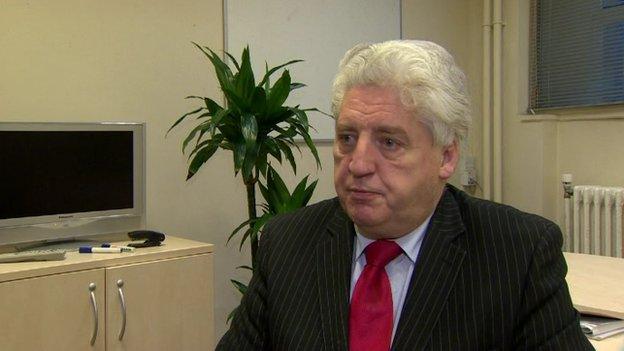
SDLP leader Alasdair McDonnell said he is not persuaded of the need to change the abortion law in cases of either lethal foetal abnormality or rape
The SDLP is to oppose changing the law to allow abortion in cases where women have been raped or are carrying a foetus with a lethal abnormality.
Northern Ireland's department of justice (DoJ) recently consulted the public on proposals to change the law.
The DoJ recommended allowing abortion in lethal abnormality cases but did not make recommendations for rape cases.
However, SDLP leader Alasdair McDonnell said he is not persuaded of the need to change the abortion law in either case.
'Unequivocally opposed'
The south Belfast GP was speaking on BBC Radio Ulster's Inside Politics programme.
Lethal foetal abnormality is where a baby in the womb has a condition which means it will die while either in the womb or shortly after birth.
Dr McDonnell said: "The SDLP is unequivocally opposed to abortion, even in those particular circumstances because basically, the predictions in those circumstances are never accurate," he said.
"Nobody can predict that a foetus is not viable, and that's the problem, and as a GP, I'm fully aware.
"I have seen situations where termination or an abortion was recommended to somebody because a foetus that had this, that or the other thing, and that foetus grew up to be a perfectly normal child."
Northern Ireland's abortion law differs from the rest of the UK.
Currently, a termination is only legal in Northern Ireland if a woman's life is at risk or if there is a risk of permanent and serious damage to her mental or physical health.
Proposals to change the law have been brought forward following publicity surrounding the case of Sarah Ewart.
She told the media of her traumatic experience of travelling to England for the termination of a baby who doctors believed would not survive outside the womb.
Alasdair McDonnell's interview will be broadcast in full on BBC Radio Ulster's Inside Politics programme, at 13:30 GMT on Saturday 30 January 2015.
- Published16 January 2015
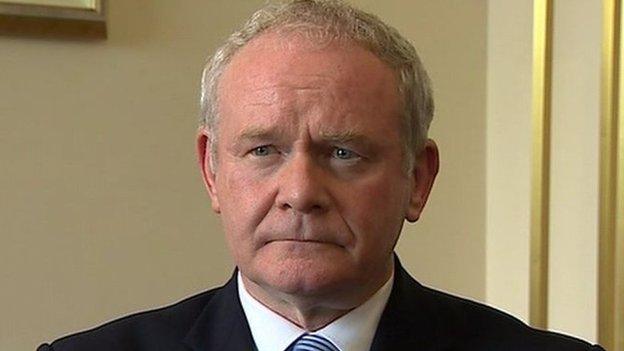
- Published15 January 2015
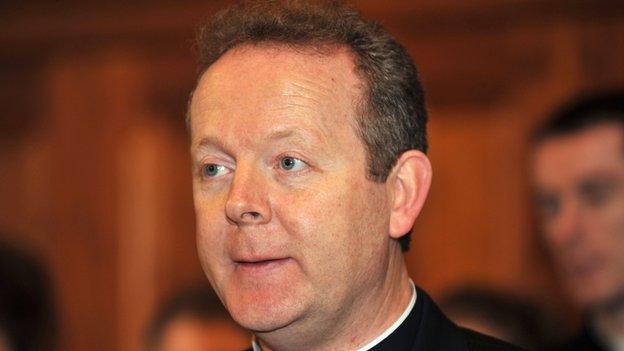
- Published10 December 2014
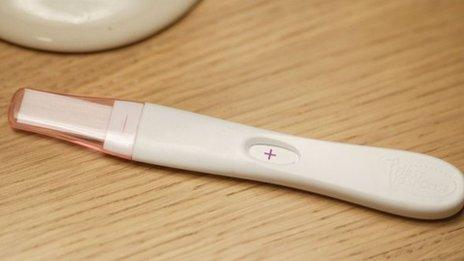
- Published8 October 2014
